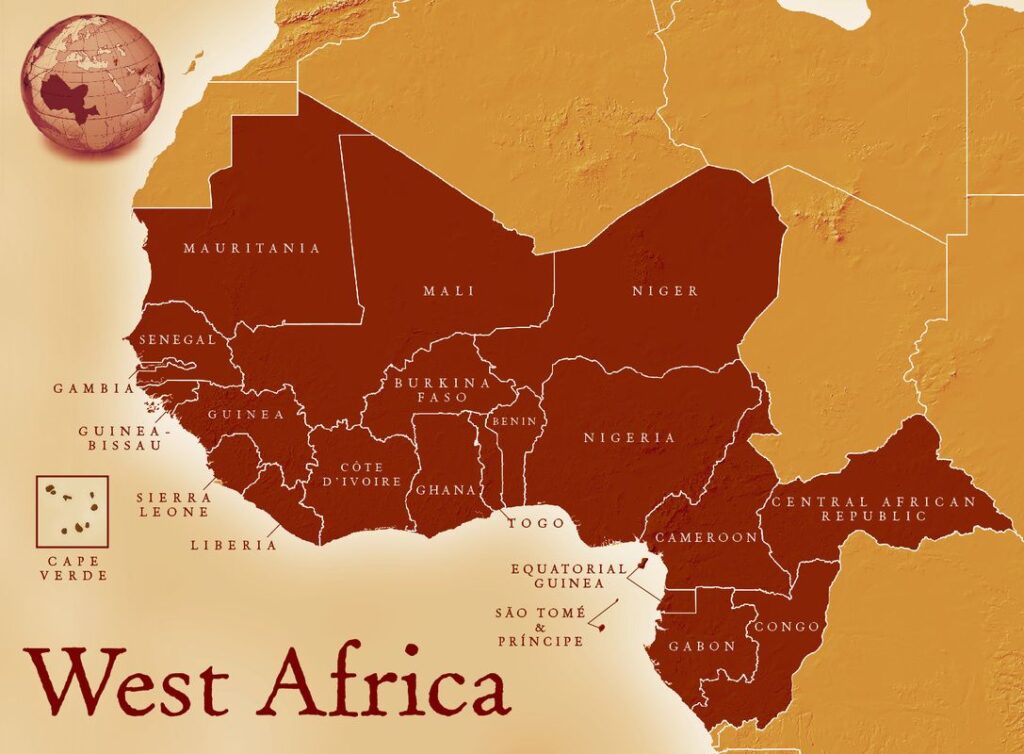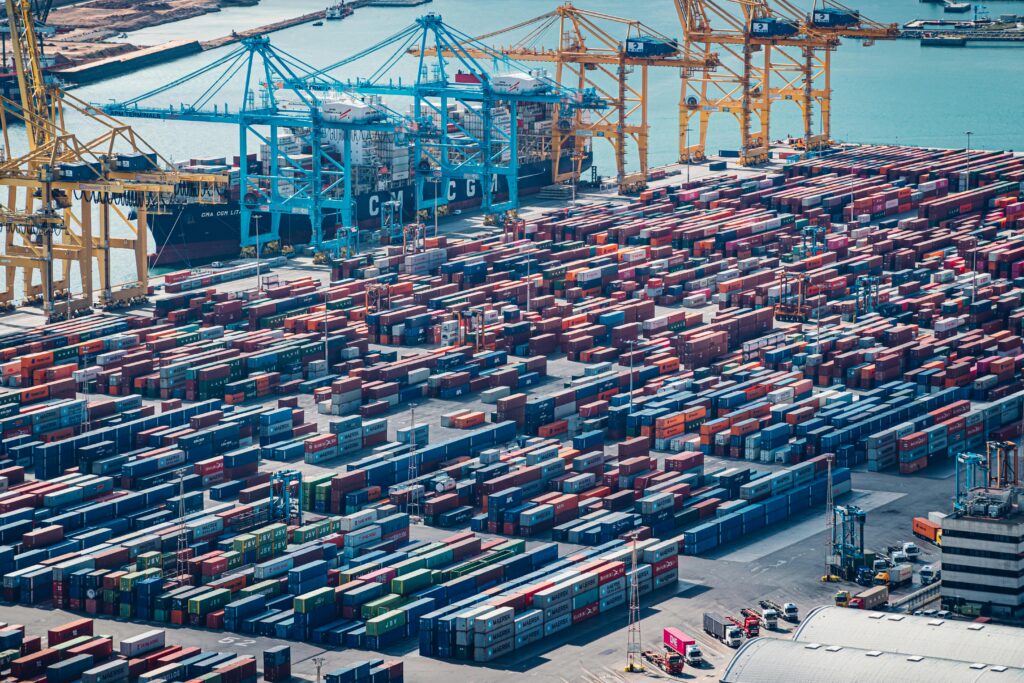
Introduction
West Africa’s economy is buzzing with new opportunities, fast emerging as one of the most dynamic trade hubs on the continent. From bustling ports in Lagos and Tema to informal cross-border markets stretching across Nigeria, Ghana, Côte d’Ivoire, and Senegal, commerce is at the heart of the region’s economy. In fact, intra-African trade is projected to grow by 33% under the African Continental Free Trade Area (AfCFTA), and West Africa is positioned to be a major beneficiary.
But one key barrier has slowed this growth: payments. Traditional financial systems in the region are plagued by currency volatility, long settlement times, and high remittance costs. For example, transferring funds internationally through banks or money transfer operators can take 3–7 business days and cost traders over 8% in fees per transaction, a burden especially heavy for small and medium enterprises (SMEs).
At the same time, adoption of digital assets such as off-ramp providers in West Africa is skyrocketing, with Nigeria ranking among the top countries globally in crypto adoption, and Ghana is not far behind, with a rapidly growing base of freelancers, SMEs, and informal traders accepting stablecoins as payment. At the heart of this revolution are regulated off-ramp provider platforms that enable users to convert cryptocurrencies into local fiat currencies securely and compliantly.
Yet to fully realize the benefits of digital currencies, businesses and individuals need a bridge between the crypto world and their everyday economy. By enabling secure and compliant conversion of digital assets into local fiat, these platforms are not only reducing costs and risks but also fueling cross-border trade and economic inclusion. They represent the missing link in West Africa’s digital economy, connecting innovation with practical commerce.
In this blog post, we will look at how Regulated Off-Ramp Providers Are Driving Trade in West Africa, the challenges they face, and the future outlook to watch out for.

The State of Trade in West Africa
West Africa is a powerhouse of trade and entrepreneurship. With the growing regional integration, such as the Economic Community of West African States (ECOWAS), a bloc representing a market of over 420 million people and 15 countries, has made regional trade easier by reducing tariffs and simplifying border controls.
With the African Continental Free Trade Area (AfCFTA) now in effect, West Africa is positioned as a hub for intra-African commerce. Businesses have access to a wider continental market valued at $3.4 trillion. These integrations are expected to increase intra-African exports by over 81% by 2035 (World Bank).
The West African region contributes significantly to Africa’s GDP, with Nigeria alone accounting for nearly 67% of West Africa’s total economic output (AfDB, 2023). Its markets are vibrant, driven by a mix of large-scale exporters, small businesses, and informal traders who form the backbone of regional commerce.
Despite this potential, several bottlenecks restrict smooth trade flows:
- Currency volatility: The Nigerian Naira, Ghanaian Cedi, and Sierra Leonean Leone have all experienced double-digit depreciation in recent years, making international transactions unpredictable.
- Limited foreign exchange access: Importers often face difficulties accessing USD or EUR for global trade, forcing many to rely on black-market forex at unfavourable rates.
- High transaction costs: According to the World Bank, Sub-Saharan Africa has the highest remittance costs globally, averaging 8.3% per $200 sent, compared to the global average of 6%.
- Logistics and infrastructure gaps: Even when goods move efficiently, payments lag; businesses may receive goods in days but wait weeks for international payments to clear.
Shift Toward Digital Finance
- Mobile money has transformed local commerce: West Africa accounts for nearly 33% of Sub-Saharan Africa’s mobile money users, with Ghana and Côte d’Ivoire leading adoption.
- Crypto adoption is also on the rise: Nigeria recorded $56.7 billion in crypto transactions between July 2022 and June 2023 (Chainalysis), much of it linked to trade and remittances.
- More SMEs are turning to stablecoins to bypass USD shortages, using them to pay suppliers in Asia or Europe, then converting back to local currencies through off-ramp providers.
The Opportunity
These trends reveal a paradox: trade in West Africa is vibrant, but traditional financial systems are holding it back. The appetite for cross-border trade exists, but the infrastructure for fast, affordable, and reliable payments lags. Regulated off-ramp providers are stepping into this gap, helping traders unlock the full potential of digital assets for everyday commerce.
What Are Off-Ramp Providers?
An off-ramp provider is a platform that converts digital currencies (like stablecoins or Bitcoin) into local fiat currencies such as the Nigerian Naira (NGN), Ghanaian Cedi (GHS), or CFA Franc. They serve as critical gateways that allow individuals and businesses to convert their cryptocurrency holdings back into local currencies. This process is essential for realizing the tangible value of digital assets in everyday commercial transactions. Popular methods include exchanges and payment platforms that facilitate withdrawals to bank accounts or mobile money wallets.
Notable providers in West Africa include Busha (Nigeria), Ovex (South Africa but serving wider Africa), and Prestmit, which support multiple African fiat currencies alongside a broad range of cryptocurrencies like USDT, USDC, BTC, and ETH
The key difference lies in regulation. Unregulated platforms often expose users to scams or compliance risks, while regulated providers integrate with local banking and mobile money systems for added trust and safety.

The Importance of Regulation
1. The Role of Regulation in Building Trust and Security
Regulation is pivotal in ensuring that off-ramp services operate transparently, securely, and in compliance with anti-money laundering (AML) and counter-terrorism financing (CFT) standards. West African countries, notably Nigeria, have updated their regulatory frameworks through the Investment and Securities Act (ISA) 2025, which licenses Virtual Asset Service Providers (VASPs) and outlines compliance with AML regulations and the Financial Action Task Force (FATF) Travel Rule.
Despite these advances, enforcement remains a challenge due to resource constraints and fragmented policies across the region. However, ongoing efforts aim to harmonize regulations through regional bodies like ECOWAS and GIABA, promoting coordinated oversight and reducing regulatory fragmentation.
2. Driving Trade and Economic Fluidity
Regulated off-ramp providers facilitate smoother and more transparent trade by enabling businesses and traders to seamlessly convert cryptocurrency revenues into local fiat currencies. This liquidity boost is particularly impactful for informal cross-border trade, which is prevalent in West Africa. By offering compliant and efficient off-ramping, these providers help integrate informal traders into formal financial systems, thereby enhancing transaction transparency and accessibility to foreign currencies. This development strengthens the overall trade ecosystem and attracts further investment, fostering regional economic growth.
3. Technological Innovations and Partnerships
The adoption of blockchain interoperability solutions and partnerships with regulatory technology (RegTech) firms enhances compliance with AML/CFT laws while streamlining user experiences. Collaborative efforts between private sector initiatives and public authorities have been vital to developing plug-and-play KYC and transaction monitoring systems. Such innovations not only aid regulatory compliance but also enable the scalability of off-ramp services across diverse geographies in West Africa.
How Regulated Off-Ramp Providers Drive Trade
Off-ramp providers do more than just move money; they create a bridge between global commerce and local economies. Here’s how they are transforming trade in West Africa, with practical examples:
- Lower Costs
Traditional bank transfers and remittance services often charge high fees for international trade. For small businesses importing goods, these costs eat into already thin profit margins. By bypassing traditional banking intermediaries, traders save on remittance and forex fees. A Nigerian importer using stablecoins and an off-ramp can pay up to 60% less in transaction costs compared to bank transfers.
- Example: A Nigerian importer buying electronics from China might previously have paid up to 10% in forex and bank transfer fees. With stablecoins and a regulated off-ramp provider like Yogupay, they can pay their supplier in USDT and can also cash out locally in Naira at a fraction of the cost.
- Faster Settlements
Waiting days or even weeks for payments to clear slows down trade cycles and limits growth. Regulated off-ramps enable near-instant conversion from digital assets to local fiat. Instead of waiting days for SWIFT transfers, off-ramp solutions enable instant to same-day payouts in local currencies.
- Access to Global Suppliers
West African businesses often face challenges accessing USD or EUR for international payments. Stablecoins, paired with off-ramps, eliminate this dependency. Traders can connect with suppliers in China, Europe, and the U.S. using stablecoins, while receiving funds locally in fiat through regulated off-ramps.
- Financial Inclusion
According to the World Bank, 57% of West Africans remain unbanked, but most have access to mobile money. Off-ramps bridge this gap by integrating with services like MTN Mobile Money, AirtelTigo, and M-Pesa (for regional trade). Regulated off-ramps that integrate with mobile money accounts bring them into global trade.
- Example: A Ghanaian graphic designer working for U.S. clients gets paid in USDC. Through a regulated off-ramp platform such as Yogupay, they convert directly into MTN Mobile Money and use it instantly for rent, bills, or savings, no bank account required.
- Trust & Security
Peer-to-peer exchanges carry risks of fraud, delayed payments, and lack of recourse. Regulated platforms protect businesses from fraud-prone peer-to-peer exchanges by operating within the financial system, offering transparency and compliance. With consumer protections, escrow, and verified partners, confidence in digital trade increases.
The Impact in Numbers:
- Nigerian businesses using stablecoin payments through regulated off-ramps report transaction cost savings of 50–70% compared to banks.
- Settlement speeds are reduced from 5–7 days to under 24 hours for most cross-border payments.
- Over 57% of SMEs in Sub-Saharan Africa are unbanked, but mobile money penetration provides a ready channel for off-ramps to boost inclusion.
The Role of Platforms like Yogupay
Platforms such as Yogupay are at the forefront of this transformation. By offering secure on-ramp and off-ramp solutions, Yogupay enables West African traders, freelancers, and SMEs to:
- Convert stablecoins into local fiat instantly.
- Enjoy bank-level compliance with KYC and AML standards.
- Access seamless integrations with local banks and mobile money networks.
This combination of compliance, speed, and accessibility positions Yogupay as a trusted partner for businesses navigating West Africa’s evolving trade landscape.

Challenges for Off-Ramping Providers
1. Regulatory Uncertainty
While some West African countries are cautiously embracing digital assets, others remain restrictive.
- Nigeria initially imposed strict limitations on crypto-related transactions through banks in (2021), only to relax them in late 2023, signalling a shift toward regulation instead of outright bans.
- Ghana is taking a progressive stance by piloting its e-Cedi, but crypto regulations remain in a gray zone.
- Francophone countries in the CFA zone follow the Central Bank of West African States (BCEAO), which has been slow to issue clear guidance.
This lack of harmonized regulation creates uncertainty for off-ramp providers, who must navigate complex and sometimes conflicting policies across different markets.
2. Infrastructure Gaps
Many businesses in West Africa still operate without reliable digital infrastructure.
- In rural areas, only about 36% of adults have access to the internet (GSMA, 2023), limiting the reach of fintech and off-ramp services.
- Power outages and unstable mobile connectivity create interruptions in digital payments.
- Lack of interoperability between banks and mobile money operators slows down adoption.
Until these infrastructure issues are addressed, scaling regulated off-ramp solutions will remain challenging.
3. Competition with CBDCs and Traditional Finance
Governments across West Africa are experimenting with Central Bank Digital Currencies (CBDCs):
- Nigeria launched the eNaira in 2021, although adoption has been slower than expected (with less than 1 million active users in 2023).
- Ghana is running advanced pilots of the e-Cedi, with plans to integrate it into mobile money ecosystems.
As CBDCs gain traction, off-ramp providers will need to adapt, potentially partnering with governments to serve as bridges between private stablecoins, CBDCs, and fiat systems.
4. Financial Literacy and Trust
A significant barrier to adoption is a lack of awareness and trust.
- Many traders and SMEs remain sceptical of digital assets due to fear of fraud or lack of understanding. A 2022 survey in Nigeria revealed that over 40% of small business owners were interested in using crypto for trade but did not know how off-ramping worked.
Education campaigns, transparent pricing, and consumer protection policies will be critical for regulated off-ramp providers to win trust.
Future Outlook: The Road Ahead
The next decade will be transformative for West African trade, and regulated off-ramp providers will sit at the center of this shift. The convergence of mobile money, stablecoins, and digital-first trade models is reshaping how businesses and individuals interact with money. Here are the key trends to watch:
1. Mainstream Stablecoin Adoption
Stablecoins like USDT (Tether) and USDC are already widely used among traders to settle international payments. As African currencies remain volatile, we can expect:
- SMEs use stablecoins as default treasury assets, reducing exposure to inflation. More suppliers in Asia and Europe are demanding stablecoin payments due to faster settlement times. And Regulators are creating frameworks to license stablecoin-focused providers, ensuring both safety and innovation.
2. Mobile Money and Off-Ramp Integration
West Africa is a global leader in mobile money adoption. According to GSMA, over 514 million active mobile money accounts exist in the region as of 2024. Future developments may include:
- Seamless off-ramping directly into mobile wallets like MTN MoMo, AirtelTigo, and Orange Money. Cross-border MoMo corridors powered by stablecoin settlement, making intra-African trade instant.
- Partnerships between off-ramp providers, telcos, and banks to offer “one-stop-shop” payment solutions for traders.
3. Rise of Hybrid Finance (TradFi + DeFi)
The future won’t be purely digital; it will be hybrid. Businesses will move fluidly between traditional banking, mobile money, and digital assets. This hybrid approach will help build trust among cautious users who prefer regulated systems but want digital speed and cost efficiency.
- Banks may partner with fintechs to offer crypto-to-fiat settlement accounts.
- Governments could integrate CBDCs into existing off-ramp infrastructure, letting users cash out from eNaira or e-Cedi alongside stablecoins.
4. Policy Harmonization Under AfCFTA
One of the most exciting opportunities lies in regulation. Currently, each country sets its own digital finance rules. But under AfCFTA, policymakers are already discussing frameworks for harmonizing payments. If successful, this could mean:
- Unified licensing regimes across multiple West African countries. Traders moving funds across borders with one regulatory approval instead of 15 separate ones.
- Easier cross-border scaling for providers like Yogupay.
5. Growth of Regional Digital Trade Hubs
Certain cities are likely to emerge as hubs for regulated off-ramp activity:
- Lagos (Nigeria): Africa’s largest crypto market, with deep trade links to Asia.
- Accra (Ghana): A stable fintech ecosystem and rising freelance economy.
- Abidjan (Côte d’Ivoire): Francophone hub with strong mobile money penetration.
These hubs will act as gateways for the wider ECOWAS region, driving adoption across both urban and rural areas.
6. Inclusion of the Informal Economy
Over 80% of West Africa’s workforce operates in the informal sector. Regulated off-ramps can play a huge role in:
- Helping market women, small traders, and gig workers access global buyers.
- Offering micro-off-ramp services where even $5 or $10 worth of digital assets can be safely cashed out.
- Building digital credit histories, allowing informal traders to access loans based on transaction records.
The road ahead is not just about payment systems, it’s about economic empowerment. By 2030, regulated off-ramp providers could help millions of West African businesses tap into global markets, reduce their dependence on volatile currencies, and create new pathways for prosperity.

Conclusion
West Africa’s trade ecosystem is at a turning point. The region has the entrepreneurial energy, market size, and digital adoption rates to become one of the most powerful trade blocs in the world. But for that potential to be unlocked, payments must evolve.
Regulated off-ramp providers are proving to be the missing link between digital currencies and local economies. By lowering costs, speeding up settlements, and offering compliance-backed solutions, they are giving traders, freelancers, and SMEs the financial tools they need to compete globally.
So, regulated off-ramp providers are no longer just a convenience; they are a necessity for scaling trade in West Africa. Through secure, transparent, and compliant fiat conversion channels, they bolster trade flows, improve liquidity, and integrate informal commerce into formal systems. Continued regulatory coordination and technological innovation will be critical in sustaining this momentum, paving the way for a more connected and prosperous West African economy driven by digital assets.
The shift is no longer about whether West Africa will embrace digital finance; it’s about how quickly businesses, regulators, and innovators can align to scale these solutions. Platforms like Yogupay are already leading the way, proving that regulated off-ramping can turn stablecoins and digital assets into engines of real-world trade.
With AfCFTA opening doors to a $3.4 trillion continental market, and with mobile money adoption at record highs, the region stands on the edge of a new era: borderless, digital-first, and inclusive trade. And as platforms like Yogupay continue to innovate, West Africa is well on its way to becoming a leader in digital-first, borderless trade. If you’re a business owner, trader, or freelancer, now is the time to explore regulated off-ramp solutions to expand your trade opportunities.
Get started with Yogupay today and experience faster settlements, lower costs, and the peace of mind that comes with a fully regulated platform. Together, we can power the next wave of West African trade.